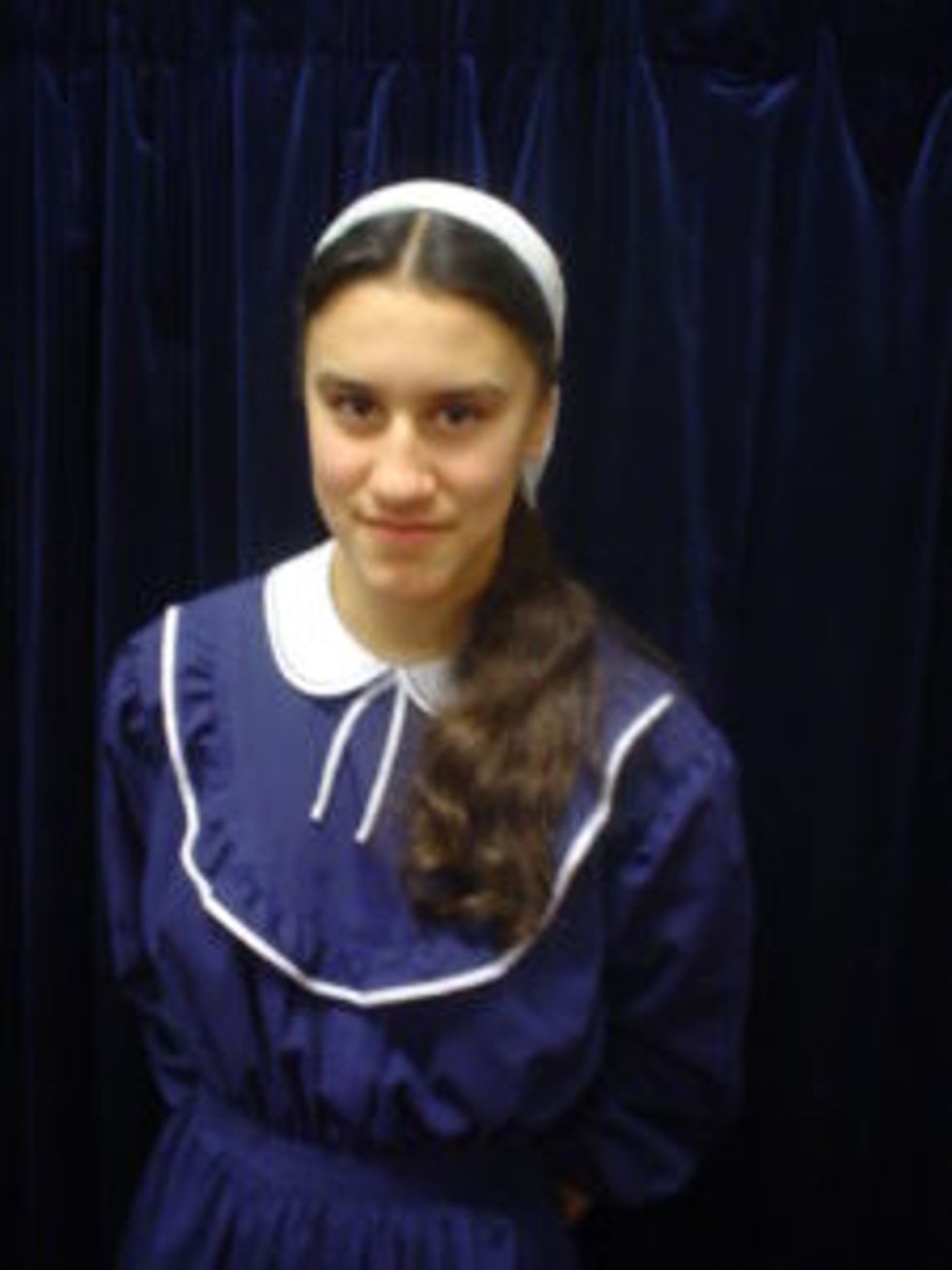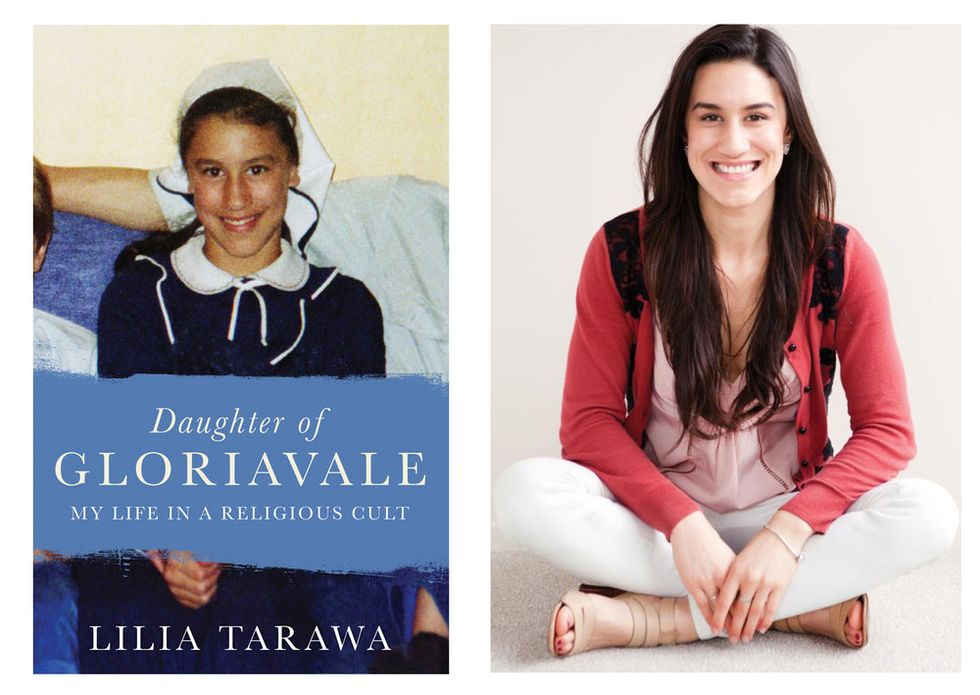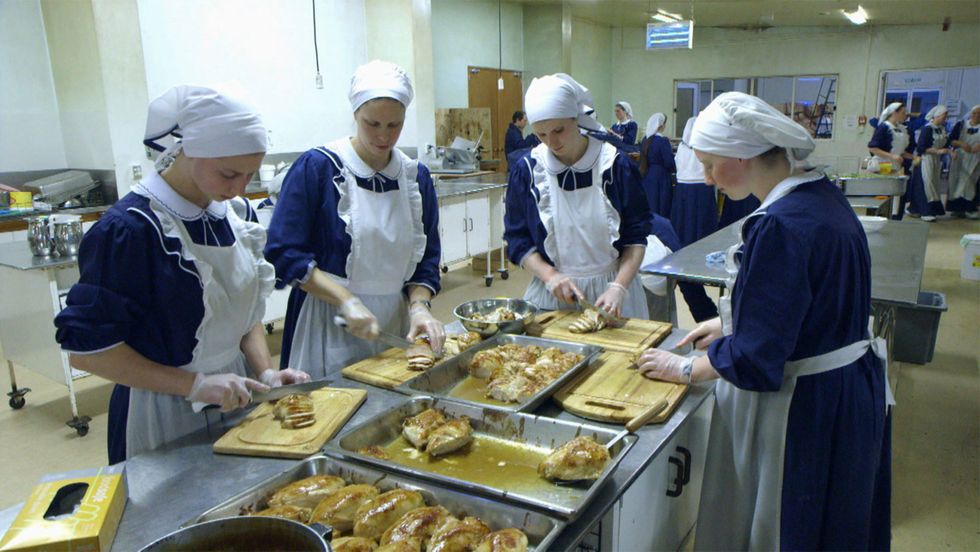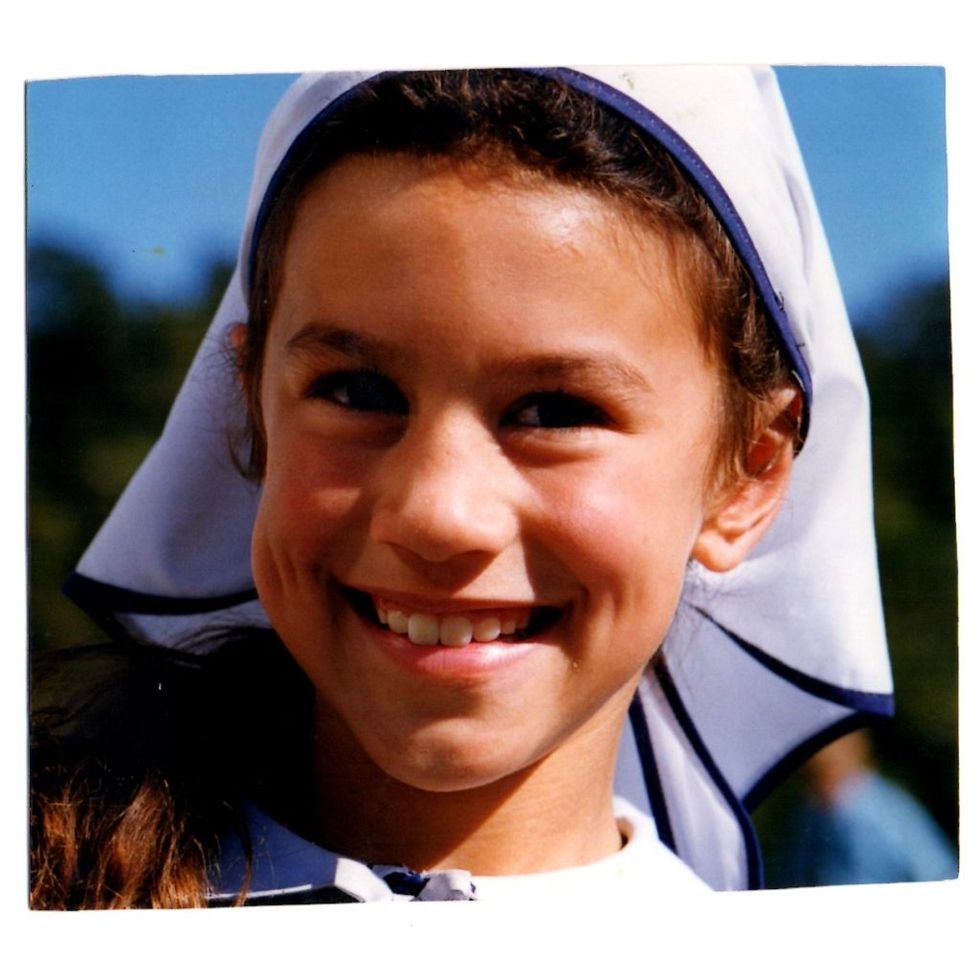Lilia Tarawa's childhood home, Gloriavale Christian Community, seemed like a dream as a child. As she grew up, she came to understand the silent and deadly grip of oppression and a lack of freedom in this religious cult. Here is the story of how she escaped her past.
1. How did your family end up in a remote place in New Zealand, and how did Gloriavale start?
"My grandfather actually started it. He was Christian, and he was traveling over the remote parts of Australia by plane, and [he] was called 'The Flying Evangelist' to teach the gospel of Christ. He was really famous, really well-known… so he was invited to New Zealand in order to preach at the churches [here].
"He brought his wife and kids over from Australia. He then became a pastor for a church here, right on the outskirts of Christchurch. He then had a falling out with another pastor, there was a church split, so he took half the church and the other pastor kept the [other] half of the church. So that’s how Gloriavale kind of started, on the outskirts of Christchurch in this area called the Springbank Christian Community. The members of his part of the Church followed him, and he split off from that church."
2. What was the most chilling part of being in Gloriavale, other than the anecdote you mentioned in your TED talk?
"It’s the amount of control they have over your life. You have no fundamental rights and no choices. I wasn’t allowed to choose what I would wear, who I would marry, how many babies I would have, what career I would have… I had to wear a blue uniform all of my life (a blue headscarf), I had to marry a person the ladies [Gloriavale’s community of leading ladies] chose for me, I was only allowed to work in domestic duties such as cook, cleaner or a preschool teacher. There were some jobs women could do in the offices, so I could do those."
"But like, I wasn’t allowed off the premises unless I had the permission of the leader. I wasn’t allowed to listen to music that was not vetted by the leaders. I wasn’t allowed to watch any movies that weren’t vetted, edited by the leaders to remove anything that wasn’t appropriate. I had no rights, and it’s very… You live in a shell of the person that you are… and you see things happening that are wrong, and you know [those things] shouldn’t be happening, but you can’t do anything about it because you’re like a robot. You always have this sense of like something’s not quite right, and I don’t know what it is. But because I don’t have my freedom of speech or thought, I’m not even allowed to question it."
3. How do you think that has affected your life today? Getting away from the community and being able to live with these new freedoms?
"Hugely. My cousin left a few weeks… and she messaged me on Facebook messenger: 'Hey Lil, guess who it is?' and it’s like 'Wow, I haven’t seen you for like eight years!' And she’s showing me pictures like… here’s my husband, here’s my baby… and then I started asking her about girls who were in my class back in Gloriavale… how’s Bethany doing? How’s Mary doing? Because I wanted to know, these girls were my childhood friends, and she was like… she’s married and she’s got four children, or like, she’s also married, she’s got like 3 children, and she’s working in the office.
"And I’m just like thinking, here I am. Same grade, same school as these girls. I am a business owner, a writer, a feminist, a leader.. I’m traveling the world, I’m speaking out against religion, I’m an agnostic, leaning towards atheist. Like, I’m everything Gloriavale despises in a woman. And I’m nothing like all those girls in my class are. In another world, in a previous world, I would have been married, have four to five children by now, and [I’d be] working as a domestic slave in Gloriavale."
"And I guess now because of this opportunity, I have to do the most that I can of it. It’s like my duty to Gloriavale."
4. So it's given you a new sense of purpose, getting away from that environment at Gloriavale?
"Totally. And because I have witnessed so much, and [now it’s like] I’m racing to issues in the world, like sexism and discrimination and especially the way that religion is impacting us as a society. How religion has impacted us in history because I’ve been on the receiving end of religious beatings (so to say)."
5. What were some specific moments that seem outrageous in hindsight? What is a defining memory of Gloriavale that makes you wonder, "Wow, I can't believe that happened to me?"
"The whole thing?" she laughs.
"But honestly, I wake up, and I cannot believe I used to live there. Like it was one point in my life, not too long ago, that was my reality. That’s not the overwhelming crazy things, memories that you take with you… it’s the everyday. I woke up, I put on a uniform every day, I prayed every single day. I praised the leaders every single day. I ate with 500 people, in a mess hall, every single day. I lived in one bedroom, in a hostel with my family, every single day. It’s the whole thing that as an adult woman, as a free spirit, I look back on and I think 'Holy sh*t.'"
6. How has the paradigm shifted through your everyday life?
"When you change the way that you look at the world, it changes everything in your life. It changes the choices you make… when you choose the people you want to date, when you choose your sexuality, when you choose your career, when you choose anything, it’s all affected by the experiences you’ve been through as a child."
7. When I was watching your TED talk, one burning question I had was about how you got out from Gloriavale. How did you escape and what did you learn from it? How did you even manage to leave such a society?
"Well, my parents were very prominent in the church community. My dad was one of the… they called them 'servants.' They’re a group of men that act like a board of directors for a company. My dad was one of those men. My mom was one of the highest-ranking women in Gloriavale because she was the only woman in Gloriavale that held a prominent leadership position. So, we called her the housemother*/housemaster because she looked over all of the women’s realm and handled money for the budget for food, concerts, clothing, etc.
"When I was really young, my siblings both left. They ran away when they were 15. Later on in life, my younger brother decided he wanted to leave, too, and my parents thought 'Gosh, we can’t let this happen again. We can’t lose another one of our children.'
"So [my parents] went to the leaders and somehow persuaded them to give us a duration where our family was living on the outside but also inside the border of Gloriavale. This was the first time it happened [in the history of Gloriavale]. So we were living in a house about 40 minutes outside of Gloriavale, in a lakeside town called Moana. And we were going there every night to eat dinner as a family, sleep, but then during the day, we’d go back to Gloriavale, put the uniform/headscarf on, do our duties, go to school… so we were living that way for about 18 months, and it was all kind of coming. We knew the leaders wouldn’t allow us to live that way. They wanted my siblings to return to the church. But it was actually starting to work the other way.
"We as a family were starting to experience this new taste of freedom. By living in Moana, we were actually able to isolate ourselves against some of the teachings and brainwashings of Gloriavale. So, eventually, we made a decision that we would leave.
"It was a Sunday. Back in Gloriavale on Sundays, we would bring our beds down after the afternoon prayer session, so everyone was sleeping. And my dad said to me, 'Keep the kids in the bedroom and wait here. Be ready to go at a moment’s notice.' So, I hid the kids while my mum was at our other house in Moana.
"So Dad went to a leaders’ meeting to ask them for permission to bless our family so then we could leave. And he was there for a long time, quite a few hours. I was starting to get worried, so I ran outside and saw him coming towards me. I saw him crying. And I’d never seen my dad crying in my life. And I ran to him, and asked him, 'What is happening?' and he says, 'Get those kids in the car right now.'
"So I then was packed in the back… there was this back big porch where they brought all the groceries when they shipped them in from town. So we ran to my family’s room, we packed up the kids, I put them in the car, strapped them all in, and then I said to my dad, 'I just need to do one more thing.'
"I ran back to my cousin’s room, and they lived right beside me. I was pretty close to my cousins; they were like siblings to me. And I just hugged them and I said, 'I love you so much. See you tonight at the meeting,' except I wasn’t going to the meeting. And so, after that I ran across the ranch to the van, and we drove out down the driveway. I looked back at the compound, and I thought, “This is the last time I’m going to see this place” and we were gone. So we went back to Moana, we changed into worldly clothes. So I put on pants, and I thought, 'Wow. This is really happening. I’m wearing pants!' And then we drove over to Christchurch."
What was the biggest lesson you learned from getting away from Gloriavale?
"Probably the biggest lesson that I learned is that sometimes you have to pay a really high price for freedom, and you have to sacrifice a lot. I had to sacrifice life as I knew it, the roof over my head, the clothes on my back, the friendships that I had, the lives I had known for all of my life, I had to let all of that go to have something different, to have freedom.
"Also that: it’s more important for you to honor your own beliefs, and do what you think is right, no matter what everyone and your society says to you. Because everyone at Gloriavale, they all thought we were wrong for leaving. But we weren’t. It was the right thing for us to do. It’s the same thing that applies to the world out here. Sometimes, doing what’s right can actually feel like it’s not that right because so many people around you are stuck in their ways or still have rigid beliefs. So I guess the biggest lesson I’ve learned is to do what’s right."
Stay tuned for part two of Lilia's interview to find out how she adapted to her new life as a free woman.























